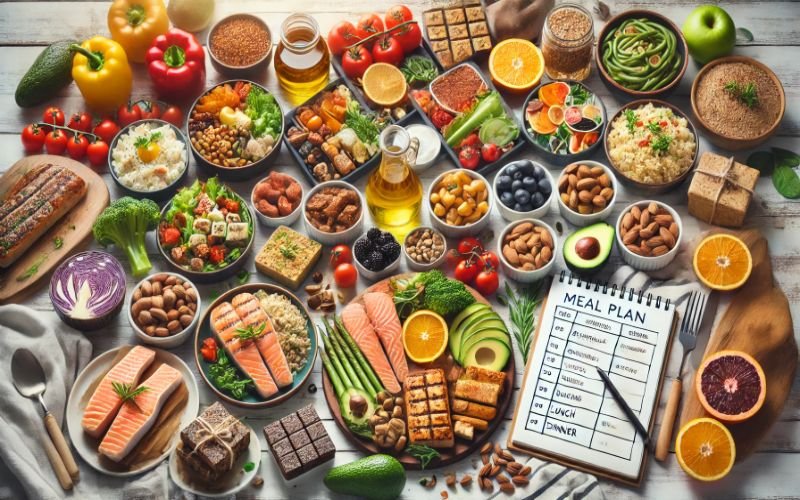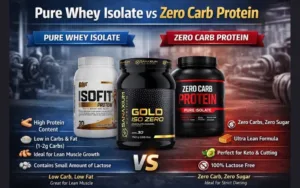No products in the cart.
Return To ShopHow Frequently Should I Eat to Gain Weight
Weight gain, much like weight loss, hinges on fundamental principles. However, the approach demands a thoughtful strategy tailored to your body’s needs. For those looking to increase their weight, it’s not just about devouring excess food or indulging in unhealthy options.
Instead, it is about creating a structured and consistent plan that ensures muscle growth, rather than simply accumulating fat. A well-planned regimen that incorporates whole foods, quality calories, and strategic eating intervals plays a pivotal role in sustainable weight gain.
The Importance of Caloric Surplus
At the heart of weight gain lies the concept of a caloric surplus—consuming more calories than your body expends in daily activity and metabolic processes. It’s a straightforward equation: if your body burns more calories than you ingest, no amount of weight training or nutrient-dense food will result in the desired gains.
Achieving a caloric surplus is the first and most critical step in weight gain, as this excess energy gives your body the resources it needs to build muscle mass and store fat.
- To effectively gain weight, you need to calculate your Total Daily Energy Expenditure (TDEE), which includes the calories your body requires to function at rest, known as your Basal Metabolic Rate (BMR), plus the calories burned through physical activity.
- Once you know your TDEE, it’s essential to exceed this number by a reasonable margin—usually around 300 to 500 additional calories per day.
However, this range isn’t one-size-fits-all. Factors such as your metabolism, activity level, and body composition goals will influence the precise caloric surplus you should aim for. Some individuals with a faster metabolism may need to increase their surplus to 500-1000 calories per day, while others with slower metabolic rates might require less.
The challenge is to strike a delicate balance between consuming enough calories to promote weight gain without overloading your body with excess energy that turns into fat. Excessive caloric intake can lead to unhealthy weight gain, characterized by fat accumulation rather than muscle growth.
Therefore, it is crucial to be mindful of the quality of the calories consumed, ensuring that they come from nutrient-dense sources rather than empty-calorie junk foods. Quality whole foods provide essential nutrients like vitamins, minerals, and fiber that support overall health while facilitating effective weight gain.
Supercharge your weight gain journey with the right nutrition! Try a weight gainer supplement today to hit your calorie goals and build muscle faster
Role of Meal Frequency in Weight Gain
While caloric intake is undeniably vital, meal frequency plays an equally significant role in ensuring your body efficiently absorbs and utilizes those calories. For many, the conventional approach of eating three large meals a day might not be the most effective way to pack on weight. Instead, breaking up your caloric intake into five to six smaller, evenly spaced meals can optimize digestion, nutrient absorption, and overall metabolic function.
- Eating more frequent meals allows your body to process and absorb nutrients consistently throughout the day, which helps prevent long gaps that can lead to muscle breakdown or catabolic states.
- A catabolic state occurs when your body begins to break down muscle tissue for energy because it’s not receiving a steady supply of fuel. By eating more often, you maintain a constant flow of nutrients, keeping your body in an anabolic, or muscle-building, state.
- Regular feeding intervals not only keep your energy levels stable but also ensure that your muscles are continuously nourished with the proteins, carbohydrates, and fats necessary for growth and repair.
- Moreover, spreading your meals throughout the day prevents overeating at any one sitting. This strategy makes it easier to consume the caloric surplus needed for weight gain without feeling bloated or sluggish.
- Smaller, frequent meals are also less likely to trigger digestive discomfort, which can be common when attempting to cram large amounts of food into just three meals. This method can also stimulate your appetite, making it easier to eat more over time.
It’s important to note that not all meals are created equal. While increasing meal frequency, the content of each meal must still adhere to a balanced distribution of macronutrients. Incorporating high-protein foods, complex carbohydrates, and healthy fats in every meal ensures you’re getting the right nutrients in the right proportions.
Prioritizing lean protein in each serving, such as chicken, fish, or legumes, can support muscle repair and growth, while carbohydrates like whole grains and vegetables provide the sustained energy your body needs to fuel workouts and other activities.
Optimizing Macronutrient Intake
It’s not just about how often you eat but also what you consume. A well-rounded approach to macronutrients—proteins, carbohydrates, and fats—is critical for achieving optimal weight gain.
- Proteins serve as the building blocks for muscle development, and you should aim to include a healthy portion of lean protein sources in every meal.
- Carbohydrates, particularly complex carbs, supply the energy your body needs for workouts and daily activities,
- while healthy fats help support hormone production and nutrient absorption.
Strive to create meals that have a balanced macronutrient profile to enhance your body’s potential for growth.
Timing Meals for Maximum Effectiveness
Timing your meals can greatly enhance your body’s ability to utilize nutrients for muscle gain and overall weight increase. The post-workout window, often called the anabolic window, is a key time when your body craves nutrients, particularly protein and carbohydrates.
During this period, your muscles are more sensitive to nutrient uptake, making it an ideal time to consume a protein shake or a meal rich in lean proteins and complex carbs.
Likewise, having a meal rich in carbohydrates before your workout can ensure you have enough glycogen stores to fuel intense sessions. Additionally, eating small, protein-rich snacks between meals ensures a continuous supply of amino acids to the muscles.
Common Pitfalls in Gaining Weight
One of the most underestimated challenges in gaining weight is consuming enough quality calories consistently. People often miscalculate their needs, believing they’re eating more than they actually are.
Moreover, relying on quick fixes, such as sugar-laden snacks or fast food, provides little benefit in terms of muscle growth. While these may increase overall caloric intake, they can lead to an undesirable fat gain rather than lean muscle mass.
Another pitfall is focusing solely on quantity over quality—where individuals eat a large amount but don’t focus on the nutrient density. Including a variety of whole foods, such as vegetables, lean proteins, and complex carbohydrates, ensures your body gets the essential nutrients needed for proper growth and repair.
Personalizing Your Eating Schedule for Sustainable Results
No two bodies are the same, and your eating schedule should reflect your individual metabolism, lifestyle, and fitness goals.
- Some people may thrive on more frequent meals, while others may find success with fewer, larger meals. Listening to your body’s hunger cues and making adjustments along the way is key to sustaining progress.
- Moreover, incorporating rest days and adjusting caloric intake as needed can help maintain a healthy balance between weight gain and overall well-being.
Your ultimate goal should be to create an eating pattern that is sustainable and supports long-term weight management, rather than a short-term fix.
Importance of Weight Gain Supplements
Weight gain supplements have become a critical tool for individuals struggling to achieve their desired body weight through diet alone. These supplements, often in the form of protein powders, mass gainers, or meal replacement shakes, provide a concentrated source of calories, proteins, carbohydrates, and essential nutrients in a convenient format.
For those with fast metabolisms or limited appetites, meeting daily caloric and macronutrient requirements through food alone can be a daunting task. Supplements bridge this gap, ensuring your body receives the fuel it needs to support muscle growth and overall weight increase.
One of the primary advantages of weight gain supplements is their efficiency in delivering high-quality calories in relatively small servings. For individuals who are active, or athletes, replenishing glycogen stores and promoting muscle repair after intense exercise is crucial.
Supplements rich in proteins like whey or casein and complex carbohydrates can hasten recovery and help maintain an anabolic state, reducing the risk of muscle loss. Sports One International offers the best weight gainer supplements to help you achieve your muscle-building and weight gain goals efficiently and effectively









Add comment